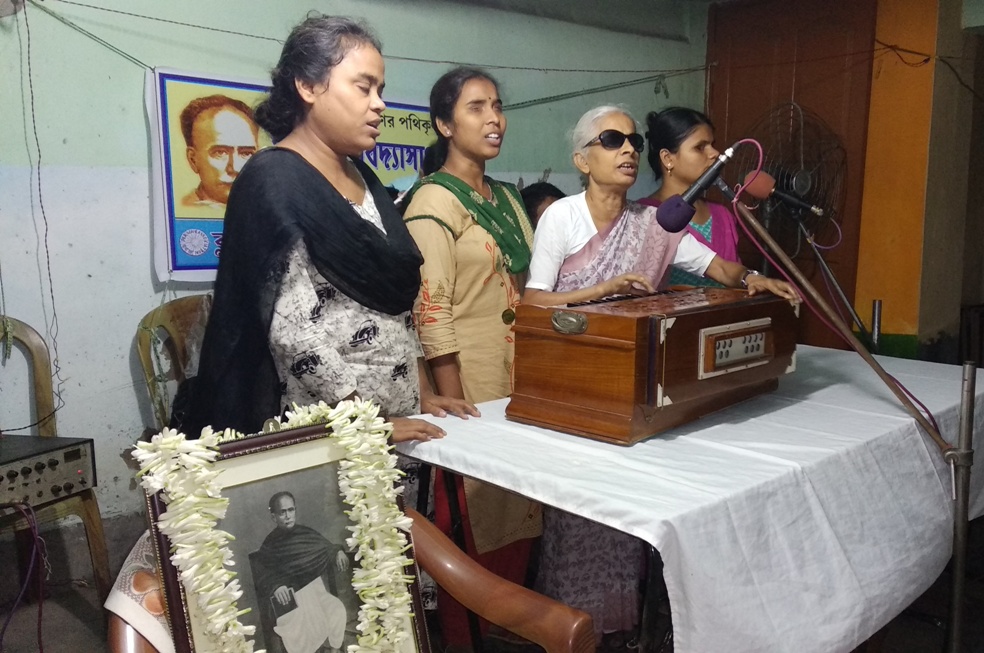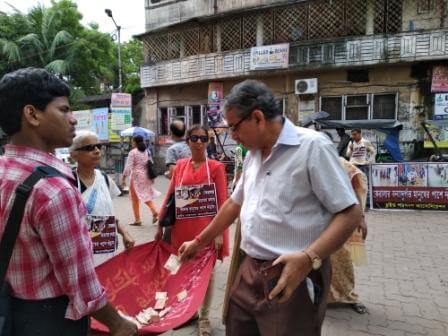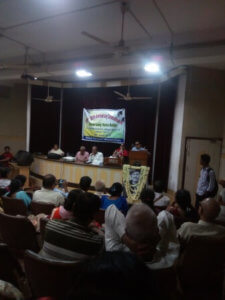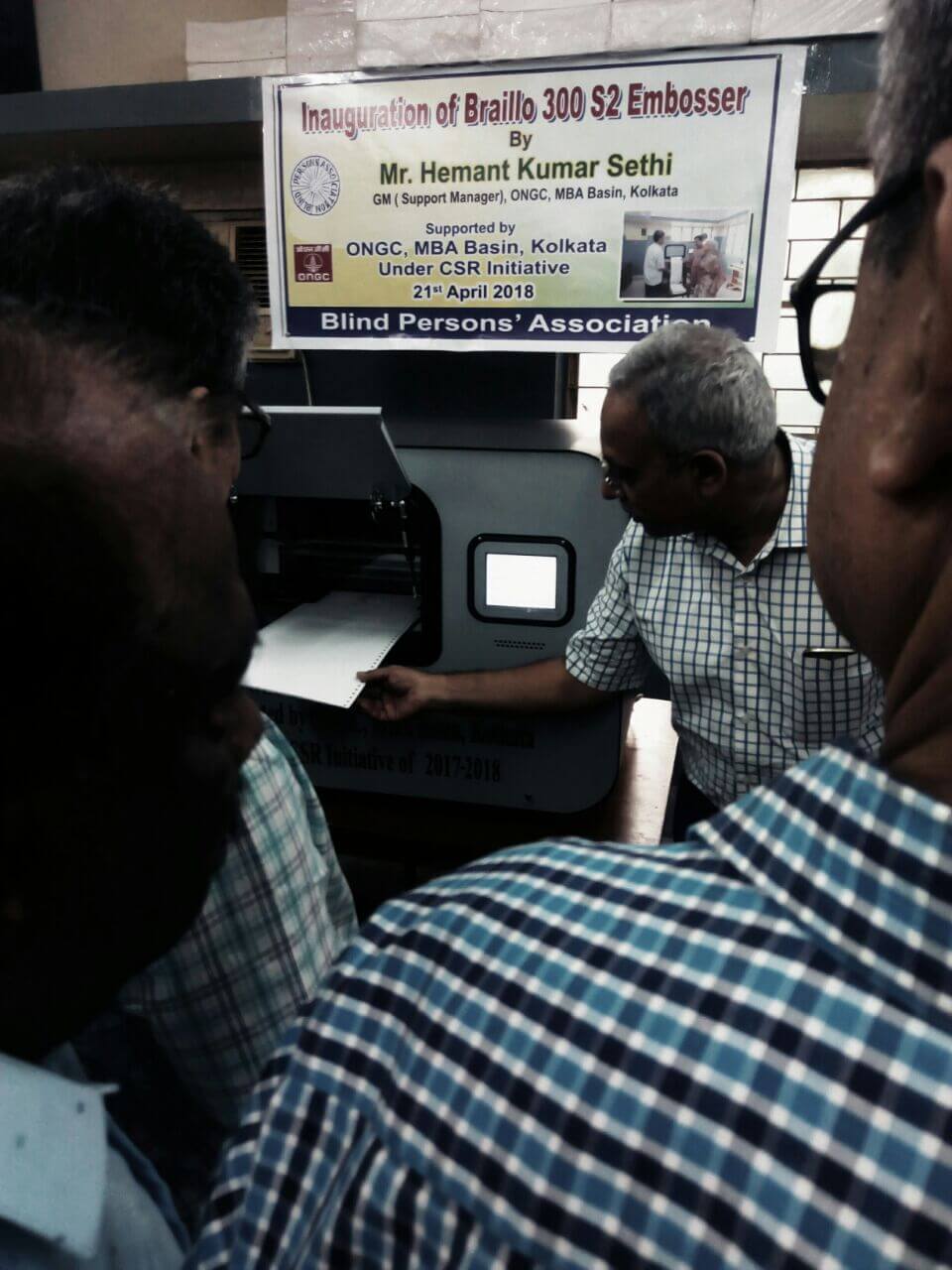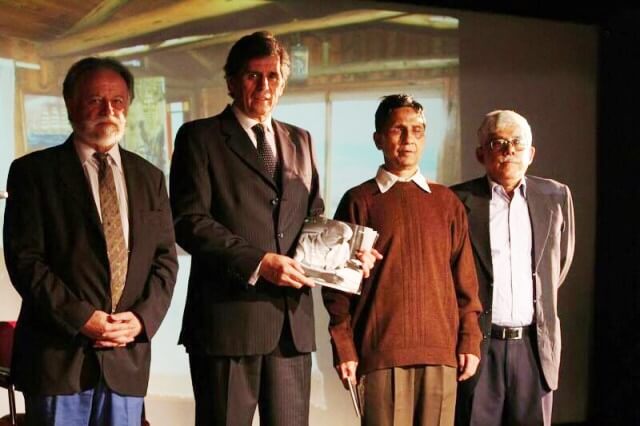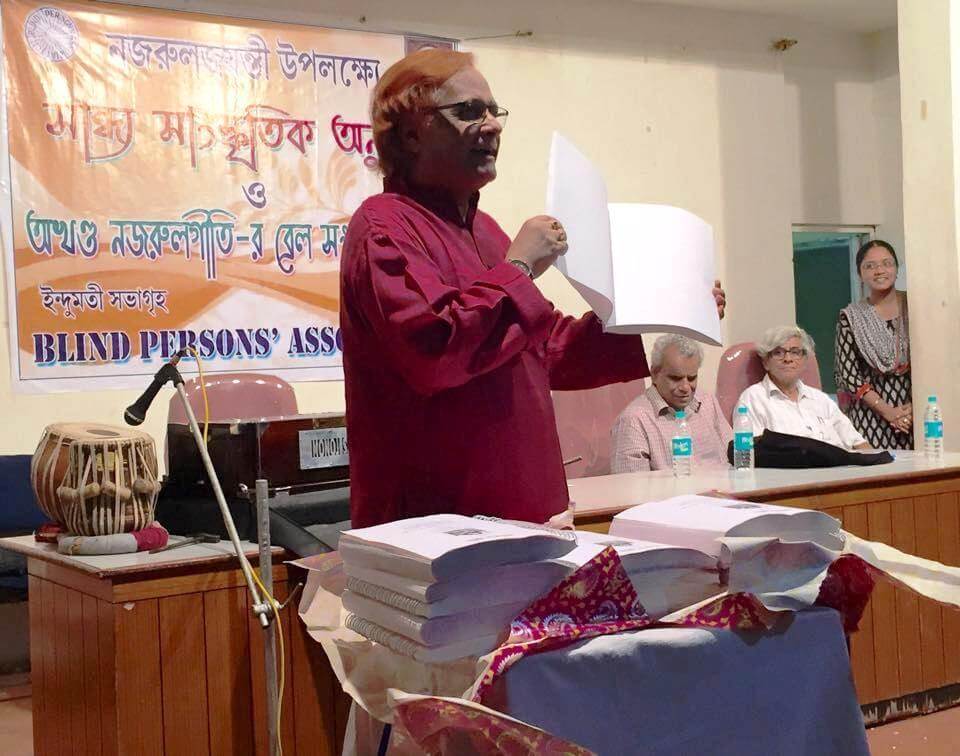Bahiri, a short Bengali novel by Ramapada Chowdhury (December 22, 1922 – July 29, 2018), has been recorded for our audio library. This audio book is about 3 hours and 19 minutes long. Print-disabled readers may contact us for a free copy on pen drive or they may collect it at the cost of a CD. Visit Audio Books page for more.
On Bahiri by Ramapada Chowdhury
Bahiri (the outsider) is the story of Bangsi who was sold by his mother to a crippled beggar. The beggar did not have his hands. He needed his services to count his changes, to stash them for safe keeping and to fetch food for him. Bangsi did not have a name. He was called Hatua, the hand because he was the hand of a handless man. Though he was helping hand of a beggar, he was not allowed to beg in front of the temple of Saksi Gopal because he was a Bahiri.
Bangsi caught the attention of a kind woman, Dayamayee who brought him to her own home in Kolkata. Soon the family started rearing him. He was admitted to a local school. Initially he failed to impress, but after two years he secured a place in his class and won a prize. Meanwhile, he mastered Kolkata accent and learned manners and customs. Bangsi was no longer the Hatua in any way. He was promoted from his corner below the staircase to a first-floor room with a table and a ceiling fan in course of events.
Still Bangsi remained a Bahiri. He was not treated as a servant boy, but he was not a family member either. The eldest daughter of the family returns home with her son Bappa after her husband’s untimely death. Bappa was not a good student. Bappa’s failure hurt their family pride when Bangsi prospered.
The turning point came the headmaster of Bangsi’s school joined a better school. He took Bangsi with him and made arrangements for his boarding and tuition. He crossed milestones one after another and graduated in business management. The novel reaches its climax when Bangsi is selected as the regional manager at the company of Sanjay, the son of his foster parents.
Ramapada Chowdhury has frequently alluded to the social dictum: people should stand where they are, otherwise it disturbs the social order. Bangsi came from the lowest rung of the ladder. His rise to the top disturbs the order. Perhaps he himself realized it at the end and refused to join the lucrative position Sanjay himself wanted.

